Impact Courses You Won’t Want to Miss in Winter 2025
BUSINESS
FOR GRADUATE STUDENTS
+Impact Studio Course (BA 670)
Professor: Jerry Davis | Credits: 3
Winter 2025
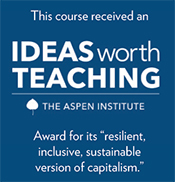 The +Impact Studio graduate course BA670 prepares students to be architects of an equitable, just, and sustainable future. In Winter ’25, we focus on the green energy transition. We will be engaging with neighborhood partners in Detroit to design equitable and feasible business models for innovative green energy models that support communities. This course received an Aspen Business & Society Ideas Worth Teaching Award in recognition of its expansive purpose, innovative thinking, and integrated, multi-disciplinary approach.
The +Impact Studio graduate course BA670 prepares students to be architects of an equitable, just, and sustainable future. In Winter ’25, we focus on the green energy transition. We will be engaging with neighborhood partners in Detroit to design equitable and feasible business models for innovative green energy models that support communities. This course received an Aspen Business & Society Ideas Worth Teaching Award in recognition of its expansive purpose, innovative thinking, and integrated, multi-disciplinary approach.
FOR GRADUATE STUDENTS
LBLE – Living Business Leadership Experience (BA 655)
Professor: Mike Barger | Credits: 3
Winter 2025
FOR UNDERGRADUATE STUDENTS
LBLE – Living Business Leadership Experience (BA 455)
Professor: Mike Barger | Credits: 3
Winter 2025
.jpg) Living Business Leadership Experience (LBLE) is a 3.0 credit-hour Ross elective course where graduate and upper-level undergraduate students from across the University collaborate to shape, implement, and lead high-impact business initiatives alongside company founders and senior leaders. Whether you’re interested in learning business by doing business, working in a cross-functional team, or navigating complex and ambiguous business environments, this course will give you the chance to develop your leadership skills and dive headfirst into the challenges of business.
Living Business Leadership Experience (LBLE) is a 3.0 credit-hour Ross elective course where graduate and upper-level undergraduate students from across the University collaborate to shape, implement, and lead high-impact business initiatives alongside company founders and senior leaders. Whether you’re interested in learning business by doing business, working in a cross-functional team, or navigating complex and ambiguous business environments, this course will give you the chance to develop your leadership skills and dive headfirst into the challenges of business.
Learn How to Join. To learn more about upcoming Winter 2025 enrollment, email ross-lble@umich.edu
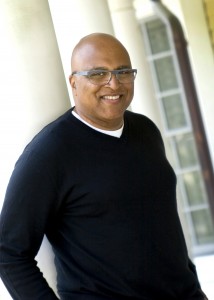 FOR UNDERGRADUATE & GRADUATE STUDENTS
FOR UNDERGRADUATE & GRADUATE STUDENTS
Urban Entrepreneurship Practicum Course (ENTR 490.012)
Professor: David Tarver
Credits: 3 | Winter 2025
In Urban Entrepreneurship Practicum, you will experience what it takes to make lasting improvements in urban quality-of-life through the creation of innovative for-profit businesses. Governments, foundations, and not-for-profit companies have long been associated with efforts to address urban community needs, but despite those efforts, significant needs persist. Entrepreneurs have a long history of service to urban communities, and rapidly accelerating technology and innovation in a variety of fields give rise to unprecedented opportunities for solving previously intractable problems and for scaling the solutions.
See Media on a Recent Class Tour in Detroit
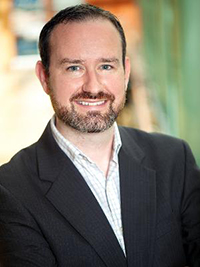 FOR GRADUATE STUDENTS
FOR GRADUATE STUDENTS
Social Intrapreneurship: Leading Social Innovation in Organizations (MO 637)
Instructor: Chris White
Credits: 2.25 | Winter (A) 2025
The course draws on the latest advances in social research, network analysis, and information technology to provide a toolkit for leading social innovation within organizations. We first lay out a framework for how effective social movements change organizations. This framework includes four parts: reading the opportunity structure to recognize when the time is right for an innovation; mapping the social terrain to locate allies and supporters; mobilizing allies into a team; and framing the case effectively as a business proposition.
FOR UNDERGRADUATE & MM STUDENTS
Social and Environmental Responsibility and Marketing (MKT 470)
Professor: Burcu Tasoluk
Credits: 3 | Winter 2025
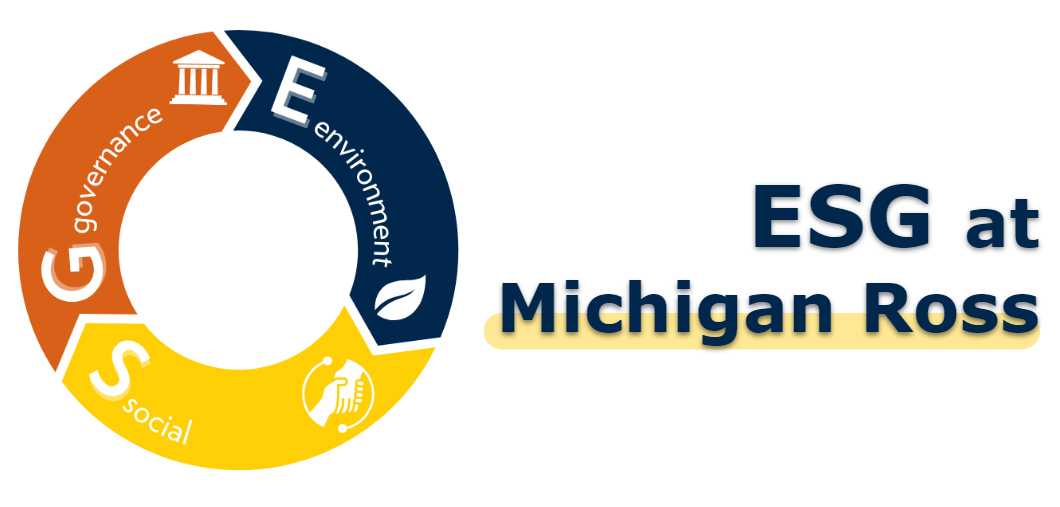 This course will cover interactions between society and marketing and marketing’s role and responsibility (in both environmental and social issues) in society. We will take a triple bottom line (People, Planet, Profit) perspective when evaluating these interactions. As such, the impact of social and environmental concerns on marketing actions, consumer behavior and company performance will be discussed in detail. Diverse perspectives from business ethics, strategy, economics, psychology, and sociology will help students adopt different lenses while analyzing a complex array of contemporary marketing issues. We will be using case studies throughout the course and students will have the opportunity to work collaboratively with peers and to discuss a broad set of interesting topics. Course topics will include Social Sustainability, Environmental Sustainability, Consumer Attitudes toward Sustainable Marketing, Social Influences on Responsible Consumer Behavior, Corporate Social & Environmental Initiatives, Marketing & AI, Brand Activism, and Brand Purpose.
This course will cover interactions between society and marketing and marketing’s role and responsibility (in both environmental and social issues) in society. We will take a triple bottom line (People, Planet, Profit) perspective when evaluating these interactions. As such, the impact of social and environmental concerns on marketing actions, consumer behavior and company performance will be discussed in detail. Diverse perspectives from business ethics, strategy, economics, psychology, and sociology will help students adopt different lenses while analyzing a complex array of contemporary marketing issues. We will be using case studies throughout the course and students will have the opportunity to work collaboratively with peers and to discuss a broad set of interesting topics. Course topics will include Social Sustainability, Environmental Sustainability, Consumer Attitudes toward Sustainable Marketing, Social Influences on Responsible Consumer Behavior, Corporate Social & Environmental Initiatives, Marketing & AI, Brand Activism, and Brand Purpose.
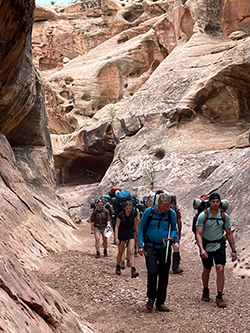 FOR UNDERGRADUATE STUDENTS
FOR UNDERGRADUATE STUDENTS
InterMission – An Action-Learning Expedition (MO 330)
Professor: Kevin Thompson
Credits: 3 | Winter 2025
InterMission is a self-leadership course for students adrift in a sea of expectations who are exceptional at fulfilling goals set by others but find themselves too busy to reflect on whether they are the right thing to do. The course includes a one-week wilderness expedition in Utah’s Canyonlands with the National Outdoor Leadership School (NOLS). The wilderness expedition is strenuous and has an incremental cost. InterMission has 10 classroom sessions of 90 minutes each and 7 intensive days on the wilderness expedition, which runs at the conclusion of winter term before summer internships. The classroom sessions will utilize and apply three rigorous, science-based frameworks developed at Harvard Business School, Virginia’s Darden School and Michigan’s Ross School.
SUSTAINABILITY
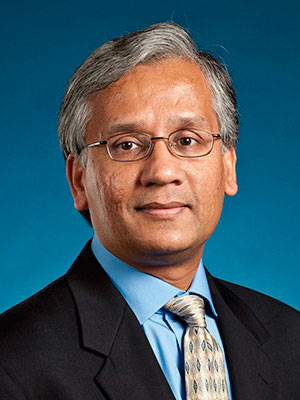 FOR GRADUATE STUDENTS
FOR GRADUATE STUDENTS
Sustainable Operations and Supply Chain Management (TO 560)
Professor: Ravi Anupindi
Credits: 2.25 | Winter 2025(A)
Firms today face increasing pressure from activists, investors, and customers, to reduce the environmental impacts of their operations and supply chains as well as uphold basic human rights and labor standards for the people who produce the materials/ components/ products. How is responsibility (for ensuring sustainability) apportioned across the extended value chain that includes the end consumers? This course examines how to design and manage environmentally and socially responsible operations and supply chains. This course is actually 2.25 credit hours, although it may be listed as 1.5.
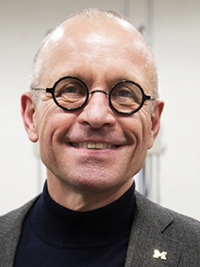 FOR UNDERGRADUATE STUDENTS
FOR UNDERGRADUATE STUDENTS
Sustainable Material Use: Carbon (MECHENG 499.03)
Professor: Volker Sick
Credits: 3 | Winter 2025
Registration after permission by the instructor. Request permission by adding your name to this list.
The focus for Winter 2025 is on carbon-based materials that range from food, chemicals, plastics, fuels, and much more. These will be examined in depth from their production, use, and disposal point of view. Economic, environmental, and societal factors will be explored to gain a holistic understanding of the use of the material, any alternatives that might be used, and overall approaches to use the material in a responsible and sustainable manner. The course is team-based and includes individual assignments. It is offered as a combination of lectures with in-class teamwork.
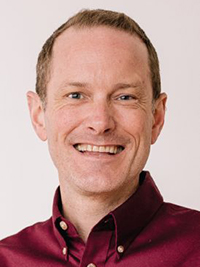 FOR UNDERGRADUATE STUDENTS
FOR UNDERGRADUATE STUDENTS
Natural Resources, Economics, and the Environment
Professor: Adam Simon
Credits: 4 | Winter 2025
This course deals with mineral resource-related problems in a complex society. The course discusses the origin, distribution, and remaining supplies of mineral resources in terms of the economic, engineering, political, and environmental factors that govern their recovery, processing, and use. Participation will involve weekly discussion section meetings, essay-style questions posted for each lecture and answered via Canvas; and a term-length discussion project focused on renewable energy.
POLICY AND LAW
 FOR GRADUATE STUDENTS
FOR GRADUATE STUDENTS
Defending Democracy: The MI Election Process in 2024
(Problem Solving Initiative), (LAW 741.001)
Professors: Andrew Buchsbaum (Law School) and Lisa Disch (LSA)
Credits: 3 | Winter 2025
Michigan, a leader in voting reform, is also a target for efforts to discredit election processes. Students will conduct a post-mortem on the November 2024 election process in Michigan, interviewing key players, doing legal analysis of election law, and reviewing documentary evidence to assess the entire process—from ballot casting, through counting, to election certification.
Working with Voters Not Politicians and other election reform organizations, they will issue a report on problems that emerged and those that were averted by recent democratic reforms.
 FOR GRADUATE STUDENTS
FOR GRADUATE STUDENTS
Comprehensive Solutions for Space Debris Removal
(Problem Solving Initiative) (LAW 741.002)
Professors: Donald Moore (Law School) and Oliver Jia-Richards (Department of Aerospace Engineering)
Credits: 3 | Winter 2025
Increasing space debris and space objects will result in an unsustainable space environment. Technological, financial, regulatory, and geopolitical solutions must work together to remove space debris.
This Law School Problem Solving Initiative (PSI) class is for all U-M graduates and professional students, especially law, engineering, and business. Multi-disciplinary teams will develop holistic solutions for space debris removal. Team-based solutions will be prepared as white-papers and presented in an end-of-semester panel format together with government and industry participants.


.jpg)